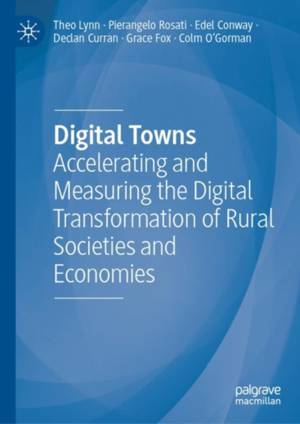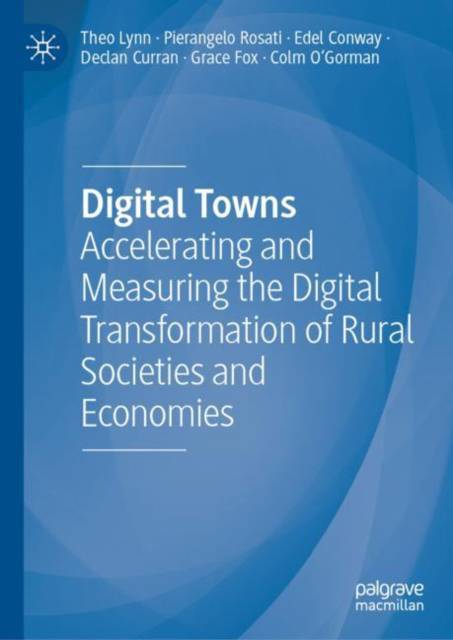
- Afhalen na 1 uur in een winkel met voorraad
- Gratis thuislevering in België vanaf € 30
- Ruim aanbod met 7 miljoen producten
- Afhalen na 1 uur in een winkel met voorraad
- Gratis thuislevering in België vanaf € 30
- Ruim aanbod met 7 miljoen producten
Digital Towns
Accelerating and Measuring the Digital Transformation of Rural Societies and Economies
Theo Lynn, Pierangelo Rosati, Edel Conway, Declan Curran, Grace Fox, Colm O'GormanOmschrijving
This open access book explores the digital transformation of small and rural towns, in particular, how to measure the evolution and development of digital towns. In addition to access to resources, competition from urban and global markets, and population trends, rural communities present lesser access and use of digital technologies and have lower digital competencies and skills than their urban counterparts. Consequently, they experience less beneficial outcomes from increased digitalisation than urban areas. This book defines what a digital town is and explores digitalisation from the perspective of the four basic economic sectors in towns - individuals and households, businesses, the public sector, and civil society - and three types of enabling infrastructure - digital connectivity, education, and governance. Particular attention is paid to how digitalisation efforts are measured by intergovernmental and international organisations for each sector and enabling infrastructure. The book concludes with a Digital Town Readiness Framework that offers local communities, policymakers, and scholars an initial set of indicators upon which to develop digital town initiatives, and measure progress. For those ready to embrace the opportunity, this book is a pathfinder on the road to a more equitable and impactful digital society and digital economy.
Specificaties
Betrokkenen
- Auteur(s):
- Uitgeverij:
Inhoud
- Aantal bladzijden:
- 213
- Taal:
- Engels
Eigenschappen
- Productcode (EAN):
- 9783030912468
- Verschijningsdatum:
- 11/02/2022
- Uitvoering:
- Hardcover
- Formaat:
- Genaaid
- Afmetingen:
- 148 mm x 210 mm
- Gewicht:
- 435 g

Alleen bij Standaard Boekhandel
Beoordelingen
We publiceren alleen reviews die voldoen aan de voorwaarden voor reviews. Bekijk onze voorwaarden voor reviews.











